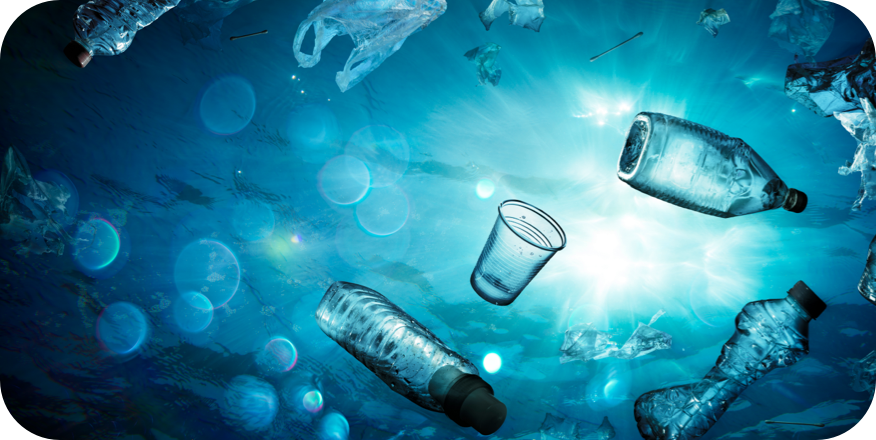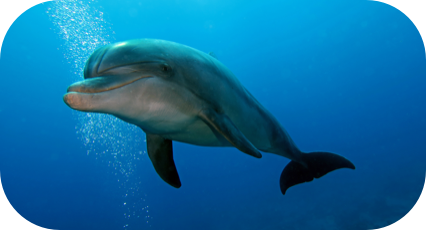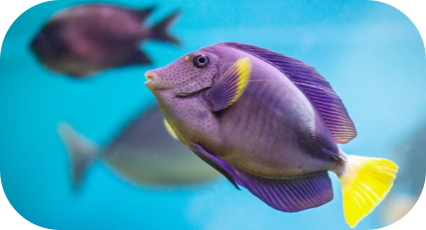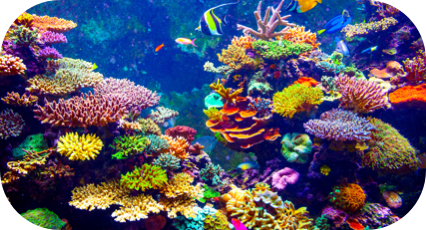Climate Control
Our oceans circulate heat from the equator to the poles, regulating the world’s weather and temperature. They also absorb over 50 times more carbon than our atmosphere, making them a key player in the fight against global warming.
Home › Blog › Our Oceans are Drowning… in Plastic

Plastic pollution is one of the greatest threats to our oceans and their wildlife, yet we continue to dump trash into them without any regard for the longevity of our world’s largest ecosystem.
Our oceans are one of the most important resources our planet has to offer. Over three billion people worldwide rely on the oceans for their livelihoods (1). According to the National Oceanic and Atmospheric Administration (2), the oceans are essential in several ways:
Climate Control
Our oceans circulate heat from the equator to the poles, regulating the world’s weather and temperature. They also absorb over 50 times more carbon than our atmosphere, making them a key player in the fight against global warming.
Medicine
Life saving medicines for cancer, heart disease, arthritis, and Alzheimer’s disease, contain ingredients from the ocean.
Economy
About 5% of global GDP is based on oceanic resources and industries (1).
The Air We Breathe
Scientists estimate that 50-80% of the world’s oxygen comes from our oceans (2,3).
Food
Fish are the primary source of protein for over three billion people. They account for over 15% of daily animal protein consumption.
So then why are we polluting one of our greatest assets at such an alarming rate? Over 8 million tons of trash are discarded in our oceans every year (4)- that’s about the equivalent to a dump truck of garbage every minute. In total, there are between 15 and 51 trillion pieces of plastic waste in our oceans right now, weighing between 93,000 and 236,000 tons (5).
Plastic pollution greatly harms marine life.
Marine animals can mistake plastics for food and ingest them, but since it can’t be broken down, it remains in their digestive system. This fills up the animal’s stomach, reducing their appetite, leading to malnourishment and ultimately starvation. Unfortunately, this is not the final stop for that plastic. Since it can take hundreds of years for plastic to decompose, once the body that a piece of plastic kills decomposes, the trash gets released back into the ocean to take another victim. In addition to ingestion, ocean wildlife can also get entangled in the garbage. This can suffocate, injure, or even drown the animal.





When an animal consumes plastics or chemicals, the harmful substance makes its way up the food chain in a process called biomagnification, until it ultimately ends up on our plate. A study conducted at UC Davis found that about a quarter of all the fish at Californian and Indonesian markets have plastics and microfibers in them(13). Consuming plastic can lead to increased risk to various diseases, including cancer, cardiovascular disease, diabetes, inflammatory bowel disease, rheumatoid arthritis, chronic inflammation, auto-immune conditions, neuro-degenerative diseases, and stroke (14).
We can also feel the effects of plastic in the ocean on the economy. It is estimated that plastic pollution results in over 13 billion dollars worth of damage to the economy every year, mainly in the tourism, fishing, and clean-up industries (15).
Thankfully, there are great strides being made to combat plastic pollution. 63 countries, in all six inhabited continents, are taking part in the UN’s Clean Seas Campaign, making it the largest effort against ocean pollution in history (16). Together, they aim to restore our oceans to the prosperous paradises they once were by reducing the plastic dumped into them, an initiative Watergen enthusiastically supports.